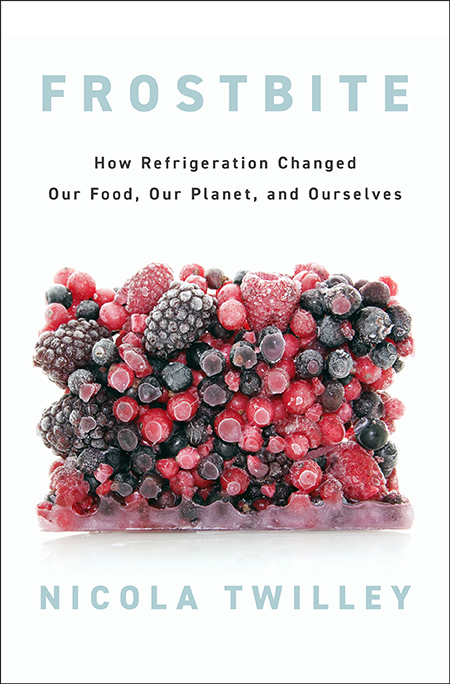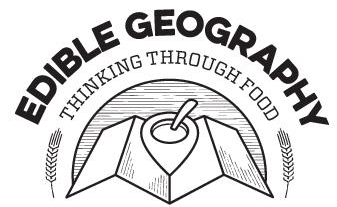
A long, long time ago, on this remote corner of the pre-Substack Internet, I began exploring what I dubbed the artificial cryosphere—the vast distributed winter of warehouses, juice tanks, reefers, meat lockers, and banana-ripening rooms that we’ve built for our food to live in. My refrigerated adventures led me to curate an exhibition at the Center for Land Use Interpretation, to teach classes at Columbia University on the subject, and to visit the world’s first frozen dumpling billionaire in Zhengzhou, for a New York Times Magazine story about China’s race to refrigerate its food supply. After a couple of years, I realized I actually had a book, rather than just an exhibition, class, or feature article, on my hands.
Frostbite: How Refrigeration Changed Our Food, Our Planet, and Ourselves is that book. It’s published on Tuesday, June 25, by Penguin Press. I am biased, but I think it’s pretty good. and several of the writers I most admire have already agreed. “It’s a fascinating, eye-opening journey, and Twilley is a fabulous guide. Frostbite will forever change the way you look at food,” according to Elizabeth Kolbert, and “a wonderfully addictive reading experience,” featuring “a remarkable cast of characters,” according to Deborah Blum. Bianca Bosker called it “a must-read for anyone who eats or drinks in the 21st century.” Harold McGee described it as “wonderfully, shiver-inducingly immersive”; Mary Roach called it “a perfectly executed cold fusion of science, history, and literary verve,” warning readers, “you have no idea the fun you’re in for here.” Yes, I am already blushing, but let’s just throw in a couple of nuggets from early reviews and interviews: writing in The Sunday Long Read, Alex Belth called Frostbite “a captivating new book … that should go on your summer reading list. Twilley is an irresistibly entertaining journalist—curious, smart, and funny,” and, on Atlas Obscura, Dylan Thuras said, “I cannot recommend this book highly enough. It is a page-turner. It is fascinating. And it changes the way you think about every single thing you eat. Go get it now!”
Writing a book is hard work, but I have to confess I also had a lot of fun along the way, visiting extraordinary spaces and meeting remarkable people. I worked in a refrigerated warehouse, I built a fridge, and I enjoyed an epic all-day banquet of never-refrigerated foods in rural China. I discovered things that shocked me even after spending more than a decade writing and reading about food—check out the stories behind the invention of salad bags and electrostimulation. And I realized that understanding refrigeration’s impact on what we eat, where it’s grown, what it tastes like, and how good it is for both our health and that of the planet isn’t just fascinating—it really matters. This invisible thermal technology upon which we are utterly dependent while also taking completely for granted has to change—humanity can’t continue to refrigerate our food the way we do now without dire climate change-induced consequences. But, unlike most climate change-related news, it’s not all doom and gloom—far from it. The story of refrigeration’s adoption also reveals how fast we can transform our entire food system, which, for the optimists among us, provides encouragement that we can do it again, and end up with something that’s not only more sustainable but also more delicious.
I’m beyond thrilled to finally be sharing these stories with you all, in the book, in the audiobook (which I narrated), in interviews, and at events round the country. Of course, on a journey that took me from subterranean cheese caves in Missouri to fishing boats on the shores of Lake Kivu, in Rwanda, I accumulated more stories than I could possibly squeeze between the covers of one book. I’ll be sharing many of them here over the coming weeks, so sign up below if you’d like to come along for the refrigerated ride.

